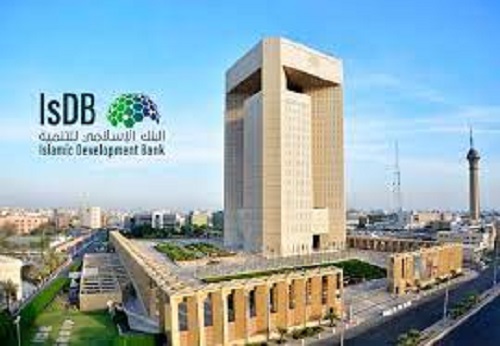The Head of Agriculture, Water Resources and Rural Development of Global Practice at the Islamic Development Bank (IsDB), Dr Nizar Zaied has revealed that the African continent is expected to import food worth $110 billion in 2025.
He said, Africa in 2019, spent $43 billion on food importation, which has continued to increased and expected to hit $110 billion by 2025.
Zaied added hat the IsDB had approved about $2.1 billion in financing for Nigeria which includes US$1.1 billion in project financing by the bank.
Speaking at the High Level Workshop on Agricultural Transformation and What Works held in Kano State, the IsDB official said the continent’s agriculture remains generally inefficient, with average yields from cereals being half those of India and a fifth of those of the US, for example.
“The current situation is quite sobering, I should say. Our continent spent US$ 43 billion on food imports in 2019, and this number is expected to grow to US$ 110 billion in 2025.
ALSO READ: NEMA solicits stakeholders, customers’ collaboration for effective service delivery
“The continent’s agriculture remains generally inefficient, with average yields from cereals being half those of India and a fifth of those of the US, for example.
“This is coming while Africa has 60 per cent of the world’s available arable land and a growing young population to work it”, he noted.
He said since the 1960s, new seed varieties, and improved access to fertilizers has helped transform agricultural production across many parts of the world.
Zaied further noted that in Asia, rice yields doubled between 1965 and 1995, while in Europe, Asia and the Americas over the past five or six decades, the private sector has used seed engineering to transform crops like wheat, corn and soy as well as improving the genetics of livestock and poultry in order to maximise calories and profits.
While acknowledging some improvements in African continent, the IsDB Official said this year, Ethiopia will produce a quarter more wheat than last year, creating a surplus for the first time.
He noted that this is coming after it created the Agricultural Transformation Agency, which has focused on developing new varieties of wheat and teff.
“On the second point about the fertilizers, I must emphasize that while African farmers use too little fertilizer, most of their counterparts in the rest of the world use too much, hence contributing to greenhouse gas emissions and climate change.
“The solution may lie in customization: conducting a soil health check and prescribing the right “blend” of nitrogen, phosphate and potassium, at the right dose.
“This is what we are trying to contribute to in the Islamic Development Bank (IsDB) through our Regional Soil Fertility program in Guinea, Mali, Senegal, and other countries”, he noted.
He therefore said that Nigeria became member of IsDB in November 1999 and it has 7.33 per cent of total subscribed capital, making it one of the major shareholders of the Bank.
“The IsDB Group has approved a total of approximately US$2.1 billion in financing for Nigeria. This includes US$1.1 billion in project financing by IsDB.
“One of the most recent approvals was in March 2024, for the Abia State Integrated Infrastructure Development Project for US$ 94 million.
“As a matter of fact, since its start of operations in 1975, the Bank has invested a total of US$ 8.7 billion for the agriculture sector in its member countries, including US$ 267 million in Nigeria”, he added.
NIGERIAN TRIBUNE
